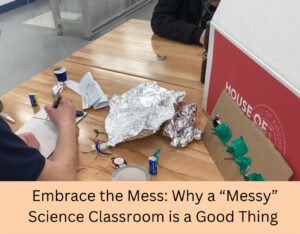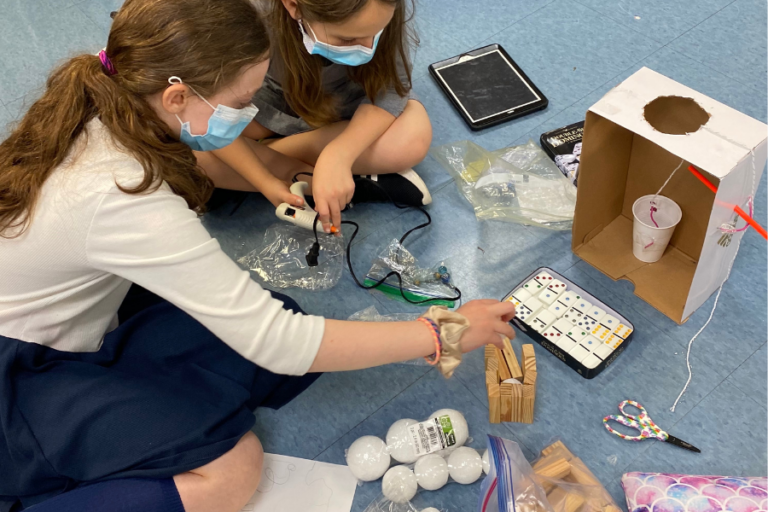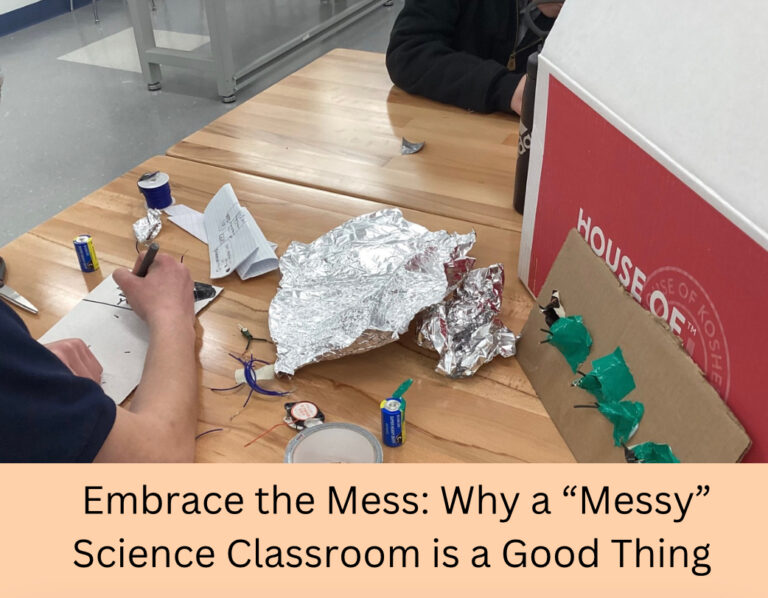10 Tips for Good Time Management in the Science Classroom
Are you determined to do hands-on activities in your middle school science room, but are afraid of how much time management it involves? What if you set everything up and the lab takes too long? Are you afraid that the students won’t finish in time for you to be ready for the next class?

10 Tips for Good Time Management in the Science Classroom
Feb 2021
Once your time is under control, you can relax and enjoy doing high action labs with your students! Check out my top 10 tips for time management that have kept my sanity in the science classroom!
Tip #1: Did You Plan and Then Plan Some More?
As you know, this age group can detect a lack of organization and hesitation in a heartbeat! That is a guaranteed, (and scary!) way to lose control.
Seriously, the most important tip is to have all of your ducks in a row before you go into a middle school science lab. Use a teacher planner designed for science teachers to have all of your plans, pacing guides, and inventory in one spot. I have my entire room inventoried in my planner so I can plan at home without digging through all my cabinets. This is super useful if you need to quickly get materials together in the morning.
Always be ready for your plans to collapse! When I was a new teacher I sometimes stubbornly pushed forward when the activity was obviously tanking. As you can predict, my frustration was crazy, behavior problems kicked in, and my conscientious students got anxiety.
Don’t be afraid to admit to the students that something didn’t work as you had hoped, and then talk about it together conversationally. Be honest and forthright. It goes a long way with middle schoolers.
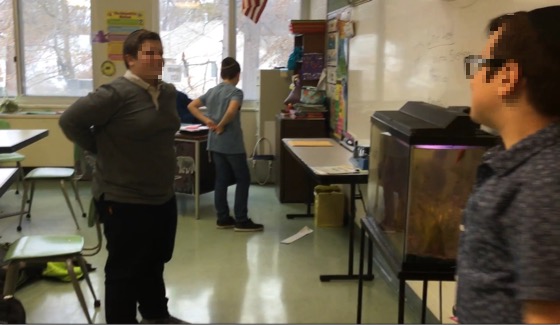
Try your best to conceal any of your own frustration. I would much rather laugh at myself with my students than show myself being obviously flustered and uncomfortable. There’s nothing wrong with saying this is what SHOULD have happened and let’s figure out WHY it didn’t happen. Take the time TOGETHER to discuss it.
Tip #2: Have You Gathered all Materials BEFORE Class?
I used to teach many classes per day so I thought it would be OK to come in and gather materials from my closet as the students were “settling down”. This produced the opposite effect.
Any teacher will tell you that the first 2 to 3 minutes of class determines the climate of the whole rest of the period.
If you look distracted and busy, then students will also become distracted and busy. They will be very reluctant to pull themselves away from the conversation that they have just started with their neighbors. Can you blame them?
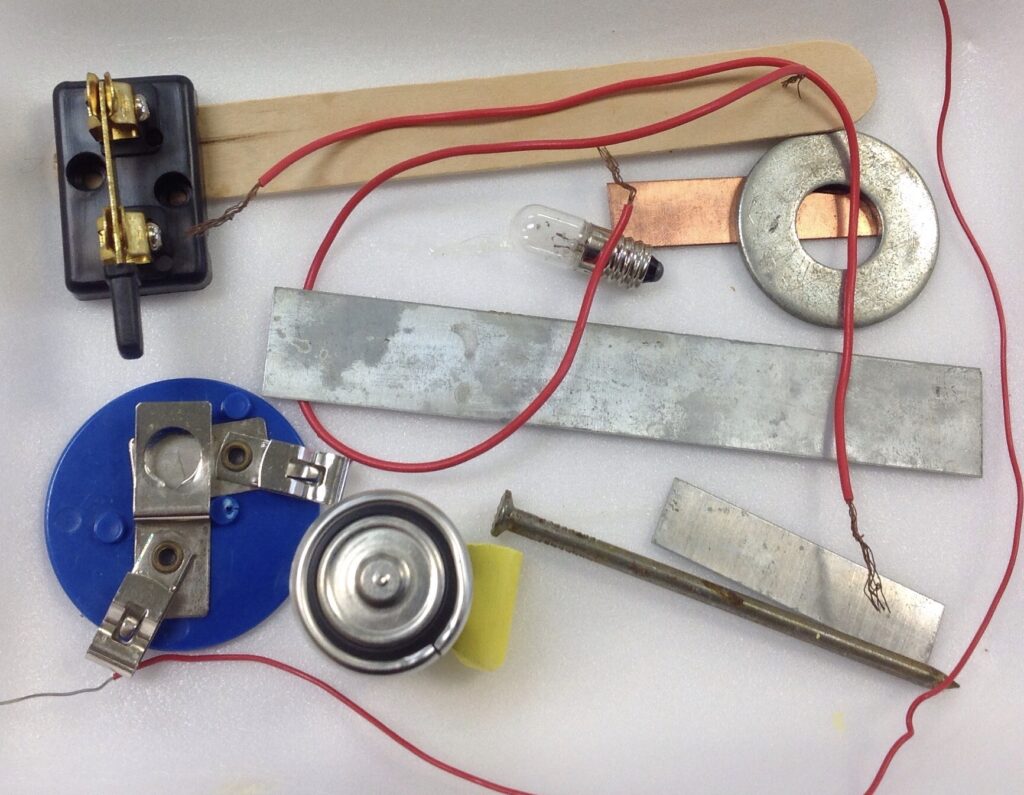
Set up early and have bins ready with the lab materials out on the table when they walk in. This also helps set the mood of expectation and anticipation for the students. They will be much more willing to come to attention to find out what interesting activity is about to happen.
Train your students to put everything back in that bin at the end of class to save you time at the end of the day.
Tip #3: Do You Understand all of the Technology?
“It’s not working!!” This is the call of distress from many teachers lately. Many of us went digital, plus we have remote students in a hybrid setup. Making sure that the technology is working before you start your day is critical!
Take the extra time to make sure you completely understand how to set up any devices needed during the class.
I have careful procedure lists everywhere that I jotted down as the tech guy taught me. Again, have a non digital backup plan if you DO run into technology problems.
Tip #4: Is Collecting Homework Disturbing Your Lesson?
Set up a system for students to turn in their homework that does not waste your class time. I am 100% digital so their homework is in their Google Slides science Notebook. Total game changer for me!
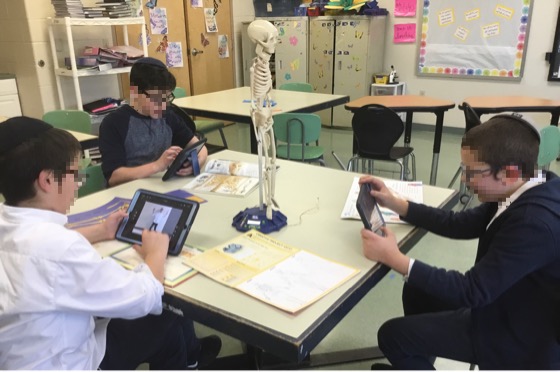
If you assign paper homework, keep a bin on your desk where they deposit assignments, as they walk-in, or as a ticket to leave the room later. Don’t let them approach you with their “homework stories“ until later in the class.
Again, those first 2 to 3 minutes are critical!
Tip #5: What are YOU Doing While Students are Working?
This is much more critical than what you might think! Students pick up on your feelings about the importance of the activity.
Are you grading papers or focused on your iPad? Are you cleaning the sink with your back turned? Student sense that they may have been given “busywork“ and act accordingly.
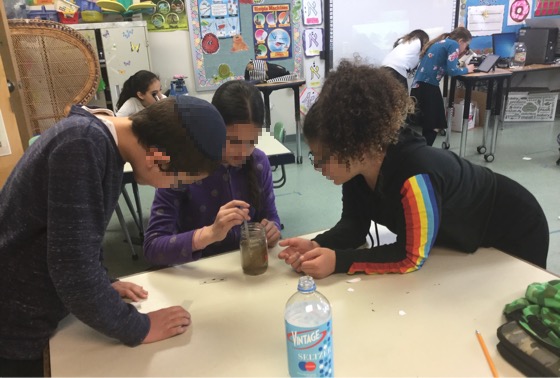
If you are moving around the room asking interested questions they will pick up on your enthusiasm and feed off of it.
The same goes for answering their questions during labs. If your answer is flippant or careless such as “don’t worry about that“, it will set the tone for the rest of the activity. This is especially important when dealing with measurement. We want them being accurate and careful for even the most simple tasks.
Tip #6: Are you Using Your Lab Time to Develop Relationships?
Use this time as you are walking around to interact with the students. Laugh and joke with them, never at them, and your classroom becomes a warm, fun place to be.
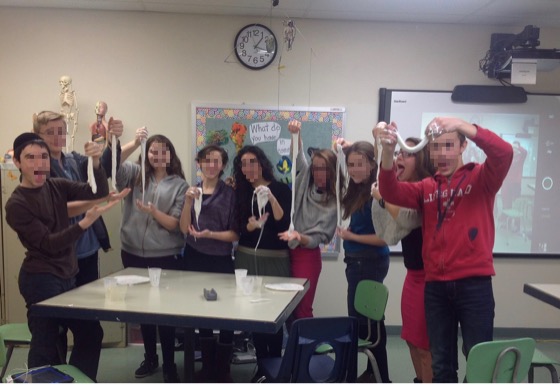
They will forget how hard they are learning!
When these relationships are established it is easy to say “OK guys, look at the clock, we’ve really got to get ourselves cleaned up“. I promise they will comply much more willingly.
Tip #7: Are You Watching the Clock?
Important time management involves giving plenty of verbal warnings as to how much more time they have left to complete an activity.
There is nothing worse than losing track of the time and frantically rushing the students to clean up, even if they aren’t done the lab. It is a recipe for disaster in terms of safety and behavior issues.
If you want to have time to clean up, plus take two minutes to review the lab, then you need to budget that into your planning.
Perhaps the activity can be broken into two days? I’d rather do a strong activity, plus a review, rather than be rushed and unclear.
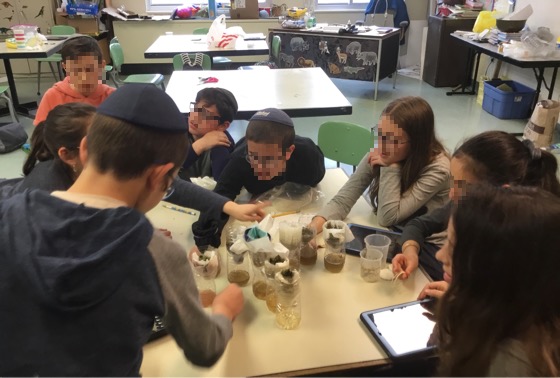
Tip #8: Are You Keeping Students Accountable?
Keep students on their toes! I have found that when I keep everything graded numerically, they step up to the challenge. I use a well structured grading system for most activities in the form of a rubric or short lab report.
The expectations and type of assessment should be very clear before the experiment even starts. A common mistake new teachers make, when they feel their classroom control slipping, is to suddenly make an activity “count” . Depending on the student, this can cause a lot of anxiety, frustration or even resistance.
Students will manage their time much more carefully when they are given a very safe, reasonable timeline in which to complete their task.
Here’s a tip. I quite often have the students read the lab instructions and assessment guidelines for homework the night before. I tell them that I will know who read it by who gets to work with confidence the following day. This prevents a lot of time wasting, plus the more driven students will kick the other ones into gear!
Tip #9: Do You Have a Plan For Students Who Don’t Finish the Lab?
Obviously all students don’t move at the same pace so you need to have a plan for how you will deal with that. Without time management, some students will have anxiety if they are asked to stop a task without completing it.
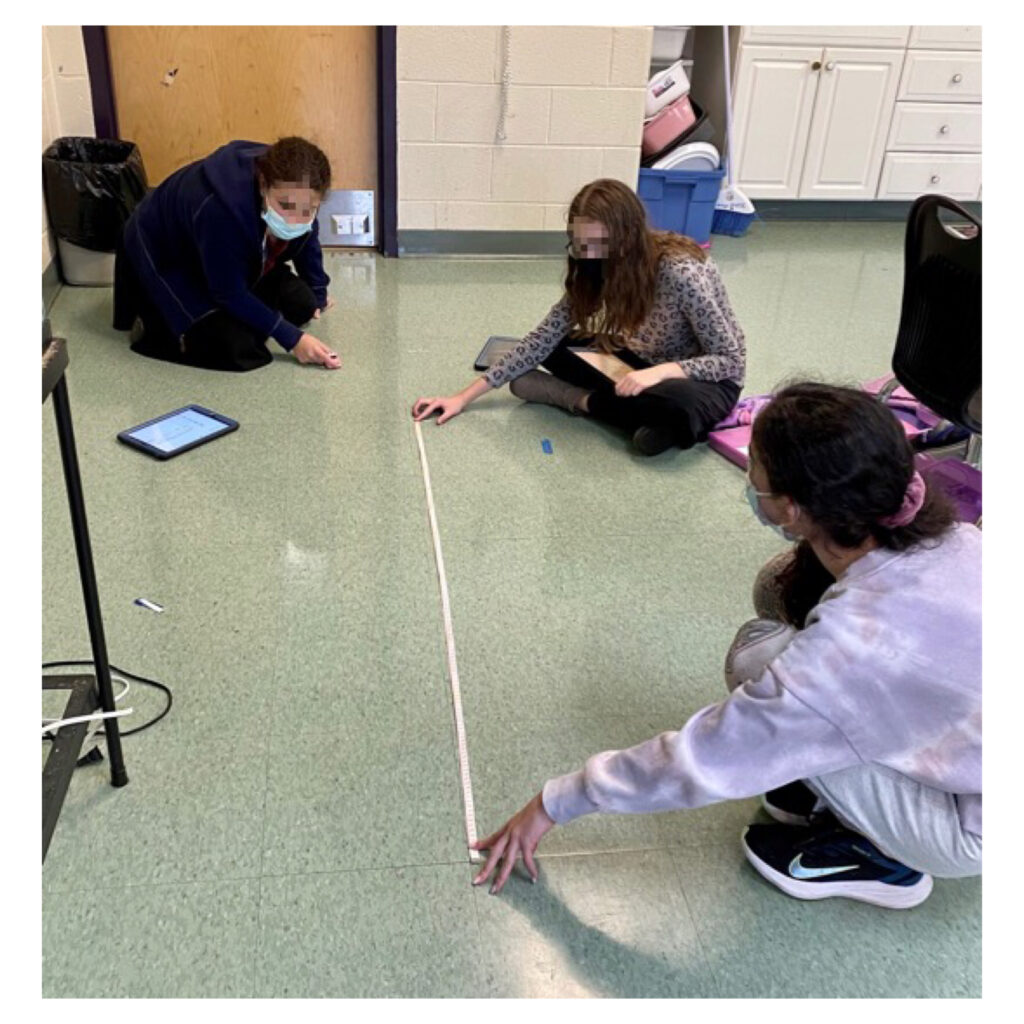
Proper differentiating in your classroom allows you to decide ahead of time if your goal for the activity was met by every level student.
Depending on how weighty the assignment is, I may simply tell the student to get the information from someone else. Other times, I may ask those students to come finish at another time. Of course, it should not be treated as a punishment. Some of my top students are my most meticulous and slowest movers.
Tip #10: Do You Change Your Class Type Day to Day?
Accept that not every class has to be a hands-on activity! This realization definitely changed my teaching.
Students need some background information for them to understand any of the labs that you are doing. However, asking the students to sit for an entire lecture period is not ideal either. I mix it up with one to two minute videos, drawings, debates, graphic organizers or break out discussion groups.
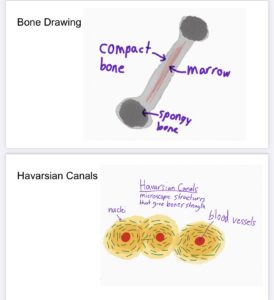
Remember, back to back labs is exhausting for you day after day. Your last students of the day run the risk of having a wiped out, cranky teacher with limited patience!
Be realistic and organized with your time management and you will find yourself much more relaxed!
Looking for science resources to use? I have hundreds of them in my store called Science by Sinai on Teachers Pay Teachers.





